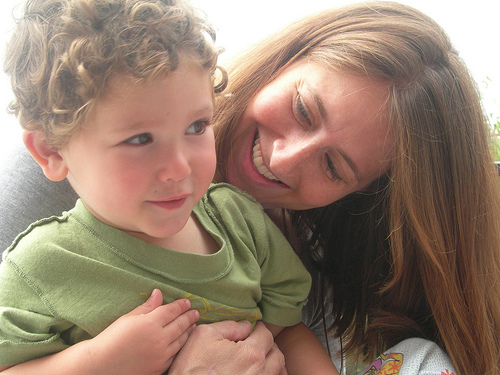
Working families need decent, sustainable jobs that give parents the freedom to take care of their children – but that’s increasingly difficult today in America’s low-wage economy.
For decades, the U.S. policy solution to lowering family poverty has been to promote parental – and in particular, maternal – employment. Yet as it stands, the sectors with the fastest-growing jobs do not provide a pathway out of poverty. Why? Because they often do not provide working parents the pay, benefits, or flexibility necessary to balance work and family life.
Today, 16 million U.S. families are headed by parents working low-wage jobs. In 2012, the National Center for Children in Poverty reported that 44 percent of all children live in families that are poor or low-income. Furthermore, low-wage work is estimated to account for two of every three new jobs in the U.S. over the next decade.
Low-quality jobs are harmful to the children of parents who work them, increasing the likelihood of health problems, school drop-out, and prolonged poverty. Conversely, paid sick days, paid family and medical leave and workplace flexibility – benefits that scarcely available to most low-wage workers – have positive family impacts for children and youth.It’s also critical to make basic investments in early education to start kids out on the right track (Oklahoma’s early learning programs come to mind). A focus on early learning, after-school, summer programs and other opportunities is essential if we’re going to ensure young people receive the guidance and attention they need.
It’s time Washington state (and the nation) start adopting public policies that promote good jobs – ones that allow working parents the freedom and flexibility to take care of their children. A full-time job shouldn’t be a ticket to poverty for parents and diminished opportunity for kids.
More To Read
September 24, 2024
Oregon and Washington: Different Tax Codes and Very Different Ballot Fights about Taxes this November
Structural differences in Oregon and Washington’s tax codes create the backdrop for very different conversations about taxes and fairness this fall
September 10, 2024
Big Corporations Merge. Patients Pay The Bill
An old story with predictable results.
September 6, 2024
Tax Loopholes for Big Tech Are Costing Washington Families
Subsidies for big corporations in our tax code come at a cost for college students and their families

![How Youth Are Put At Risk by Parents’ Low-Wage Jobs [PDF]](https://www.opportunityinstitute.org/wp-content/uploads/2013/01/youth-at-risk-from-low-wage-jobs.gif)